
Making connections: Canada’s largest integrated brain centre opens
February 27, 2014The Djavad Mowafaghian Centre for Brain Health unites research and clinical expertise in neuroscience, psychiatry and neurology. Read More >
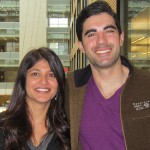
New ideas change your brain cells: UBC research
February 24, 2014UBC’s Shernaz Bamji and Stefano Brigidi have discovered how brain cells change during learning and memories. Read More >
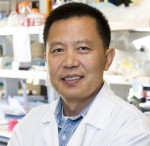
A new technique to target and disable pathological proteins
February 21, 2014The method, co-discovered by Professor of Neurology Yu Tian Wang, can be applied to Alzheimer's disease, Huntington's disease, stroke and even cancers. Read More >

Why Canada needs healthy prisons
February 18, 2014Canada going wrong direction on prison health, says Clinical Professor Ruth Martin. Read More >
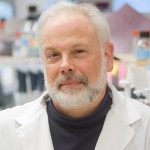
Researchers discover how ALS spreads
February 17, 2014A study led by Prof. Neil Cashman has revealed how ALS, also known as Lou Gehrig’s disease, is transmitted from cell to cell. Read More >
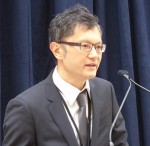
UBC helps expand diabetes clinical trial network
February 14, 2014Tim Kieffer (left) will test a teabag-like device that encapsulates stem cell-derived beta cells; Rusung Tan (right) will launch a clinical trial of a drug now used for psoriasis. Read More >
South African healthcare workers face greater risk for TB and HIV
February 14, 2014Annalee Yassi (left) and Elizabeth Bryce (right) are helping South Africa implement occupational health guidelines for patient care staff. Read More >
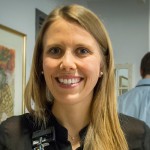
A healthy scoop of support
February 13, 2014Megan Kilvert started the Ice Cream Rounds at BC Children's Hospital to help deal with the pressures of medical residency. Read More >
A new pathway for stopping an incurable disease
February 13, 2014Paul Sorensen discovered a protein that prevents some childhood cancers. Now he has found that the same protein, HACE1, might also protect neurons against Huntington disease. Read More >
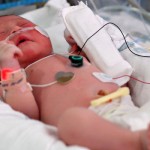
Genetic discovery helps newborns beat a life-threatening condition
February 13, 2014Clara van Karnebeek discovered a previously unknown cause of excess ammonia in the blood, enabling the condition to be diagnosed -- and treated. Read More >
Contact
Communications
UBC Faculty of Medicine
Email: communications.med@ubc.ca
Office: 604.822.2421
